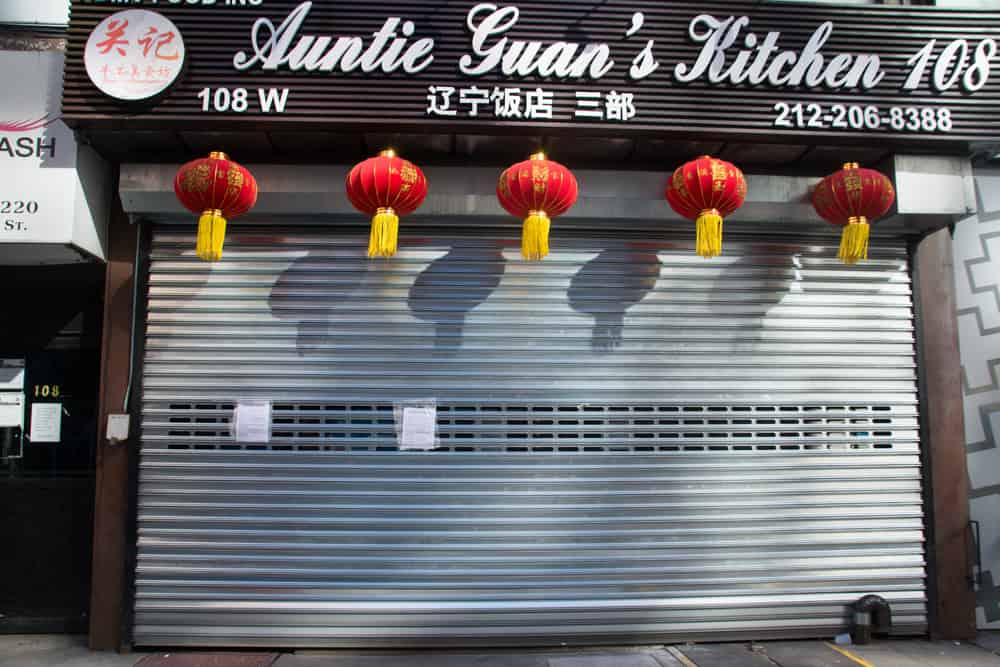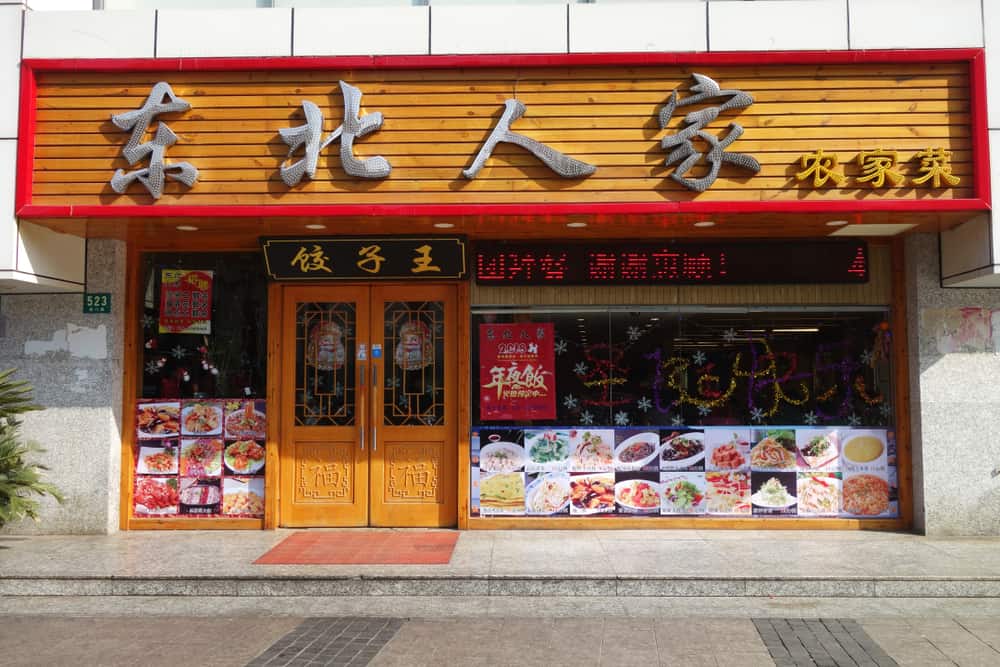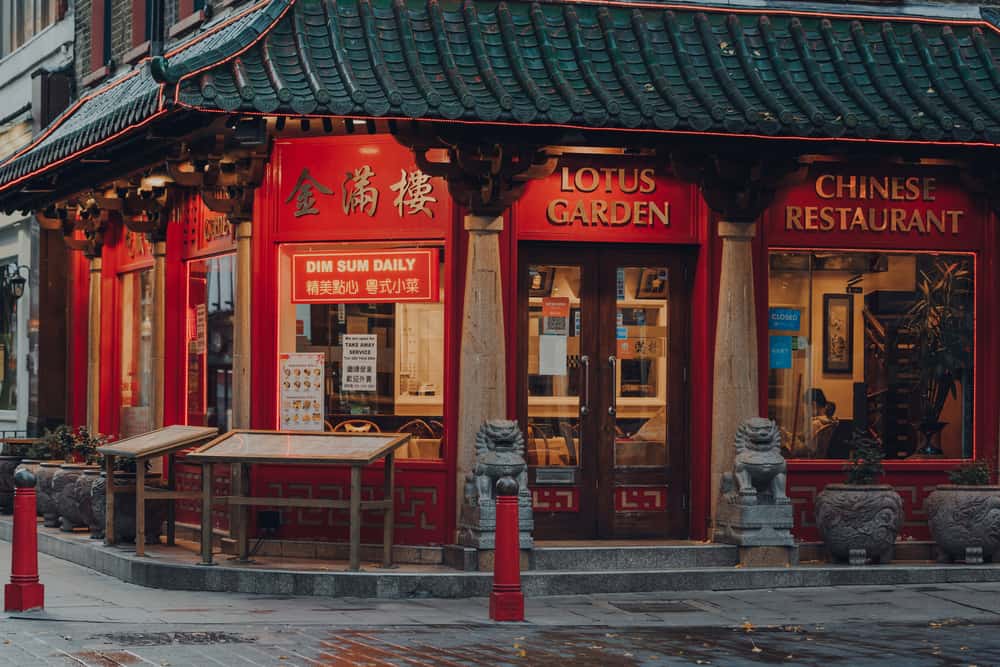Chinese restaurants frequently follow a unique tradition of Why Are Chinese Restaurants Closed On Mondays? and this practice stems from various considerations. Also, primarily, Monday serves as the designated day off for these establishments after the bustling activity of the weekend.
The hardworking staff rightfully deserves a much-needed break to recuperate and recharge. This intentional pause allows them to maintain a high level of service throughout the week. Furthermore, Sundays pose a particular challenge for Chinese restaurants as they grapple with delivery issues, leading to reduced inventory levels at the beginning of the week.
Why Are Chinese Restaurants Closed On Mondays?

Why Are Chinese Restaurants Closed On Mondays? There are a variety of reasons. One main reason is that it is their designated day off. After a busy weekend, the staff deserves a well-deserved break to rest and recharge. Additionally, many Chinese restaurants need help with Sunday delivery issues, resulting in low inventory on Mondays.
Starting the week with a day of rest allows them time to replenish their supplies. Also, Mondays tend to have lower foot traffic, making it a less profitable day for business. Moreover, some owners have personal preferences or traditions that lead them to close on Mondays.
Real Reason Behind It
It’s Their Day Off
Chinese restaurants close on Mondays simply because it’s their designated day off. After a hectic weekend, the hardworking staff deserves a well-earned break to relax and recharge. This day off allows them to spend quality time with their families or pursue personal interests. Also, it’s a chance for the chefs and servers to rejuvenate and return refreshed for the rest of the week.
While it may inconvenience some customers who crave their favorite Chinese dishes, it’s important to remember that everyone deserves some time off. So, the next time you find yourself craving some General Tso’s chicken on a Monday, take a moment to appreciate the dedication and hard work of the Chinese restaurant staff who make your dining experience memorable.
Sunday Delivery Issues
Sundays can be a tricky day for Chinese restaurants regarding deliveries. Many suppliers and wholesalers need more delivery services on Sundays, causing a shortage of fresh ingredients and supplies for the start of the week. This can be particularly challenging for Chinese restaurants that heavily rely on daily deliveries to maintain the quality and freshness of their dishes.
Access to these essential ingredients is necessary for creating the authentic flavors and delicious meals customers crave to become problematic. Also, therefore, closing on Mondays allows Chinese restaurants to restock their inventory and ensure they have everything they need for a successful week ahead.
It’s the Start of The Week
Mondays mark the beginning of the week for many businesses, including Chinese restaurants. It’s a day that sets the tone for the rest of the week. As customers return to work and school after the weekend, their dining preferences may shift, with many opting for a lighter or healthier meal. This change in consumer behavior can impact the traffic and demand for Chinese cuisine on Mondays.
Chinese restaurants may take advantage of this quieter day to regroup, plan, and prepare for the busier days ahead. It’s a chance to ensure they have the ingredients, staff, and resources they need to deliver exceptional service and delicious food throughout the week. So, while some may find it inconvenient, the closure on Mondays allows Chinese restaurants to hit the ground running and provide a memorable dining experience for their patrons.
Low Traffic
Mondays tend to be slower for Chinese restaurants in terms of foot traffic. After a busy weekend of customers filling their tables, Mondays often bring a lull in activity. As people return to work and school, their dining preferences may shift, with many opting for a lighter or healthier meal. This change in consumer behavior can impact the demand for Chinese cuisine on Mondays.
Additionally, Mondays typically have fewer events or gatherings than weekends, resulting in less overall dining out. While this may seem inconvenient for those craving their favorite Chinese dishes, it allows Chinese restaurants to regroup, plan, and prepare for the busier days ahead.
Day of Rest
After a hectic weekend of serving hungry customers, Chinese restaurants close on Mondays to give their hardworking staff a well-deserved day of rest. Their chance to recharge and rejuvenate before diving into another busy week. Imagine the long hours on their feet, the constant hustle and bustle, and the dedication it takes to create delicious meals. Mondays allow them to spend quality time with their families or pursue personal interests.
It’s a day to relax, unwind, and recharge their batteries. While it may be inconvenient for those craving their favorite Chinese dishes, it’s essential to recognize the effort and commitment of the restaurant staff. So, next time you come across Why Are Chinese Restaurants Closed On Mondays, remember to appreciate the much-needed day of rest they deserve. It’s their way of ensuring they can continue providing you with a memorable dining experience throughout the week.
Low on Inventory
Chinese restaurants often face inventory challenges on Mondays, leading to closure on this particular day. Due to limited or no Sunday delivery services, many suppliers and wholesalers cannot deliver fresh ingredients and supplies to the restaurants. As a result, Chinese restaurants may need more inventory at the beginning of the week. This shortage can impact their ability to create the flavorful and authentic dishes that customers crave.
So, while it may be disappointing for those looking to satisfy their Chinese food cravings on Mondays, it’s essential to understand and appreciate restaurants’ logistical challenges in maintaining the quality and freshness of their dishes. By closing on Mondays, Chinese restaurants can continue to provide a memorable dining experience with the best ingredients available.
Food Preparation
Food preparation is a crucial aspect of running a Chinese restaurant, and Mondays provide the perfect opportunity to focus on this essential task. The chefs and kitchen staff take advantage of this day to meticulously prepare the ingredients, ensuring everything is fresh, flavorful, and ready to be transformed into mouthwatering dishes throughout the week.
Also, from marinating meats to chopping vegetables and creating homemade sauces, food preparation requires time and attention to detail. By dedicating Mondays to this crucial task, Chinese restaurants can ensure that each dish is made with care and precision, resulting in an exceptional dining experience for their customers.
Owner’s Personal Preference
Some Chinese restaurants close on Mondays simply because of the owners’ preference. While there are various practical reasons behind the closure, such as the need for rest, inventory replenishment, and preparation, personal preference also plays a significant role. Some owners believe that taking Mondays off lets them start the week with a fresh mindset and renewed energy.
Closing on Mondays also allows the owners to evaluate and refine their business strategies, ensuring they continue delivering a top-notch dining experience for their customers. Also, ultimately, the owners’ personal preferences add a touch of individuality and character to Chinese restaurants, making each unique and special.
Related: Smoothie King Pineapple Surf Recipe: For Freshness, Flavor, and Fun
What is the slowest day of the week for restaurants?
Many restaurants experience fluctuating levels of business throughout the week, with specific days being slower than others. Also, the slowest day of the week for restaurants can vary depending on location, type of cuisine, and local demographics. However, traditionally, Mondays are generally one of the slower days for restaurants.
After a busy weekend of dining out and socializing, people often opt for a quieter start to the week, preparing meals at home or seeking lighter options. This shift in consumer behavior can result in decreased foot traffic and fewer restaurant reservations on Mondays. Additionally, Mondays may be a day when people are more focused on work or other obligations, leading to fewer opportunities for dining out.
Where do Chinese restaurants get their food supplies?
Chinese restaurants source food supplies from various places to ensure the freshest and highest quality ingredients. Also, here are the primary sources where Chinese restaurants obtain their food supplies:
Local Markets:
Chinese restaurants often purchase fresh fruits, vegetables, and other ingredients from local markets. These markets offer various produce, allowing restaurants to select the best options based on their needs and preferences.
Wholesale Suppliers:
Many Chinese restaurants have established relationships with wholesale suppliers who specialize in providing ingredients for Asian cuisine. These suppliers offer a range of products, including meats, seafood, spices, and sauces, at bulk prices.
Specialty Importers:
For unique and authentic ingredients, Chinese restaurants may rely on specialty importers who bring in items directly from China. These importers ensure that the restaurants can access traditional Chinese ingredients that may not be readily available locally.
Direct from Farmers:
Some Chinese restaurants have partnerships with local farmers, enabling them to source organic and seasonal ingredients directly from the source. Also, this supports local agriculture and ensures the freshest and highest quality produce for the restaurant’s dishes.
By carefully selecting their food suppliers and maintaining strong relationships with them, Chinese restaurants can guarantee the quality and authenticity of their cuisine. Whether it’s sourcing local produce or importing specialty ingredients, these establishments prioritize providing the best culinary experience for their customers.

How many people work in a typical Chinese restaurant?
Have you ever wondered how many people it takes to run a typical Chinese restaurant? Also, let’s take a behind-the-scenes look at the bustling kitchen and busy dining room to find out:
Chefs:
Chinese cuisine is known for its intricate flavors and meticulous preparation. In a typical Chinese restaurant, you’ll find a team of skilled chefs expertly handling work, chopping vegetables quickly, and ensuring that every dish is perfectly cooked.
Kitchen Staff:
Assisting the chefs is a group of dedicated kitchen staff members. They tirelessly prepare ingredients, marinate meats, and keep the kitchen running smoothly.
Servers:
The friendly and efficient servers are crucial in delivering a memorable dining experience. They take orders, serve dishes with a smile, and ensure every customer feels satisfied.
Management:
Behind the scenes, there’s a management team overseeing operations, ensuring quality control, and handling the business side of things. Their work, from scheduling shifts to managing inventory and finances, is essential to the restaurant’s success.
Support Staff:
A support team keeps the restaurant clean and organized, from dishwashers to janitors. They work diligently behind the scenes to maintain a sanitary and welcoming environment for staff and customers.
Why do Chinese restaurants stay open on Christmas?
Many businesses close their doors at Christmas, and families come together to celebrate. Also, however, you may have noticed that Chinese restaurants often stay open on Christmas Day. But why is that? Well, the answer lies in Chinese culture and tradition. Christmas is not traditionally celebrated in China as a religious holiday, so it holds a different significance than in Western countries.
Chinese restaurants see Christmas Day as just another day for business, and they want to provide their services to customers who may still need to get the traditional Christmas feast at home. It’s a way for them to cater to a different demographic and ensure everyone has a place for a delicious meal. So, if you find yourself craving some Chinese cuisine on Christmas Day, you can rest assured knowing that many Chinese restaurants will be open and ready to serve you.
Related: Captain D’s Tartar Sauce Recipe – A Comprehensive Guide
Frequently Asked Questions
Why do the Chinese have Mondays off?
Chinese restaurants close on Mondays as it is their designated day off. After a busy weekend, the hardworking staff deserves a well-earned break to rest and recharge.
Why Are Chinese Restaurants Closed On Mondays?
Restaurants, including Chinese restaurants, may close on Mondays for various reasons. It could be because Mondays have lower foot traffic and less overall dining out, making business a less profitable day. Additionally, some restaurant owners have personal preferences or traditions that lead them to close on Mondays.
Why do Chinese restaurants close on Tuesdays?
While Chinese restaurants commonly close on Mondays, some may close on Tuesdays instead. This decision may be based on owner preference, lower Tuesday traffic, or the need for an additional day of rest and preparation.
What is the busiest day for Chinese restaurants?
The busiest day for Chinese restaurants can vary depending on various factors such as location, local demographics, and cultural practices. However, weekends, particularly Fridays and Saturdays, are the busiest for Chinese restaurants as people often dine out or order takeout during these days.
What is the slowest day for restaurants?
The slowest day for restaurants can also vary depending on various factors. However, Mondays and Tuesdays tend to be slower for many restaurants as people often opt for lighter or healthier meals and dining out less after the weekend.
What is the slowest day in the restaurant industry?
Mondays are one of the slowest days in the restaurant industry. This is because people are often focused on work or other obligations, resulting in fewer opportunities for dining out. Additionally, Mondays may see decreased foot traffic and fewer reservations as people seek quieter starts to the week and prepare meals at home.
Conclusion
In conclusion, Why Are Chinese Restaurants Closed On Mondays for essential reasons? Dedicated staff members enjoy a restful break to rejuvenate after a bustling weekend. Moreover, Sundays often present delivery challenges, leading to diminished inventory on Mondays. This strategic closure aligns with the industry’s need for balance and efficiency.
The tradition of Monday closures is rooted in the well-deserved respite for hardworking restaurant teams and a practical response to logistical hurdles. As the week unfolds, this practice ensures that Chinese restaurants consistently deliver customers quality service and delicious cuisine, maintaining a delicate equilibrium between demand and operational sustainability.

